Naas, Kildare
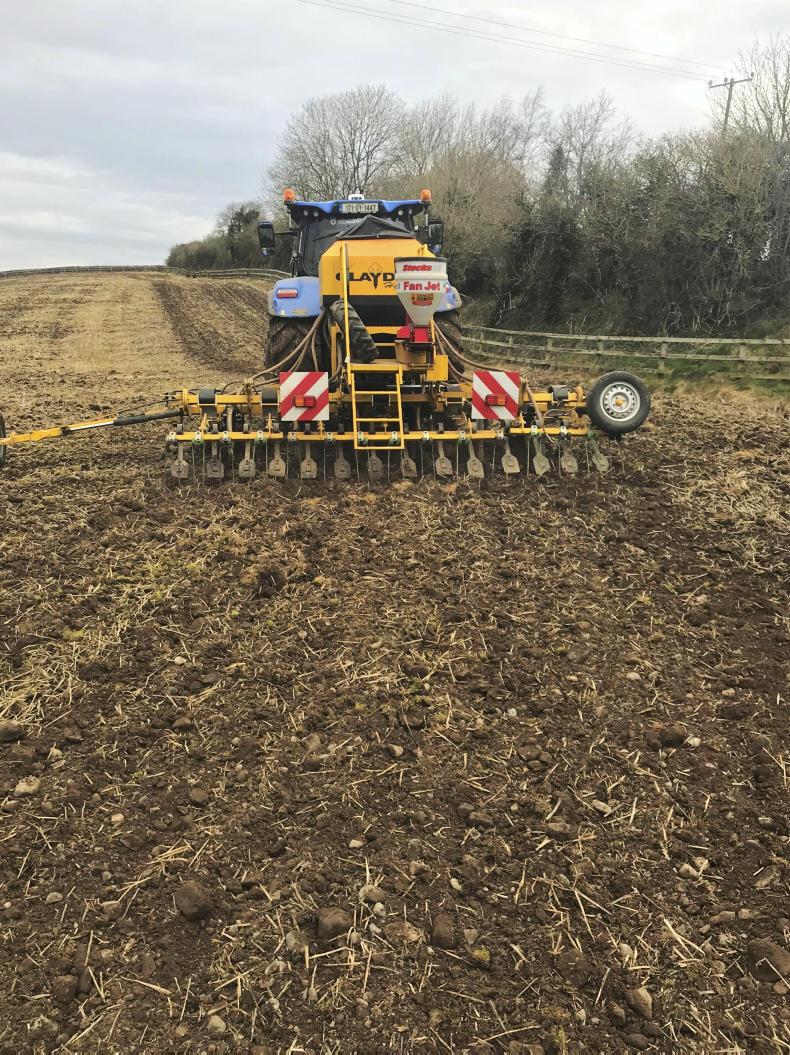
Tim drilling his Fanfare spring beans this week using his Claydon drill.
Tim has been able to make good progress over the past week as the wet spots are finally beginning to dry out. While the work load is high, it is manageable he said. At the time of writing this, he was aiming to finish sowing spring beans within a number of days. However, securing the last of his seed was proving an issue.
This year he is sowing the varieties Lynx, Fanfare and the new variety Victus. Tim noted that the size of spring bean seed this year was quite large, but also variable ranging anywhere from 530g-670g. As a result, he had had to reduce his seed rate from 40 seeds/m2 to 35 seeds/m2. Rates ranged from 240kg/ha to 300kg/ha. He uses a Claydon drill to direct drill most of his bean crops at 10cm deep, although he is drilling into ploughed for a proportion of a client’s crop.
Where he drilled directly into to stubble, he intends to apply Nirvanna (3.5l/ha) and Round Up at 1l/ha (to kill green cover) this week.
Winter barley
This year he is growing Belfry, Carnival and LG Casting winter barley which received 225kg/ha of 9:7.5:25+S on February 1. He attributes this application of fertiliser to the good condition of the crops now. Last week he applied the second split of 195-225kg/ha of the same compound. The crops received weed control last autumn and in February.
He is also happy with the condition of his winter wheat crops, Graham, Costello and Bennington. He again noted the variable seed size last autumn which resulted in seed rates ranging from 190kg/ha to 220kg/ha. He applied 390-450kg/ha of 9:7.5:25+S to the crop this week. He intends on applying a spring herbicide of Alister and Zypar onto his wheat crops which are following winter beans to knock out volunteers and grassweeds. His January sown winter wheat has been quiet slow to emerge. More on this next month.
Lifford, Co Donegal

Hugh has decided to replant his winter barley crop with spring malting barley. The crop failed due to prolonged waterlogging over winter.
Ground has been slow to dry on Hugh’s farm, but he is planning to make a start at ploughing for spring crops this weekend.
He has spent this past week cleaning the drains in his fields. Hugh’s farm sits on flat, low-lying land close to the River Foyle.
While quite productive, it is prone to water logging and requires routine maintenance of drains. “Water doesn’t run off my land, it runs through it – it has nowhere else to go,” he said.
Hugh uses a high-pressure jet cleaner to unblock and clean his drains. A hose is fed through the drainage pipe and has a high-pressure conical jet attached to the end, which flushes silt, iron ochre and sediment from the pipes and perforations.
He generally has to do this every two to three years in order to keep them clear.
Replant
Hugh has decided to replant his crop of winter barley. The crop failed due to waterlogging over winter and has so far cost him around €200/ac to establish.
He acknowledges that, even by planting a crop of spring malting barley, it will just about break-even.
He is growing Graham winter wheat for the first time and the majority of the crop is in good condition.
The crop received Most Micro (3.6l/ha) in October but he intends to follow up with a half rate of Cameo Max and Zypar in a few weeks, in order to control fumatory. The weed can be a problem on his farm.
He is aiming to apply 550kg/ha (4.5 bags/ac) of 10:10:20 to the crop this weekend and plans to bring the crop up to 220kg N/ha. He will also apply muriate of potash around the same time.
His Isabel oats are doing very well and will receive 430 kg/ha of 10:10:20, as well as 120kg/ha of muriate of potash at the weekend.
Ballyragget, Co Kilkenny

James rolling his Husky winter oats with his 15.3m HE-VA ring roller.
Around 51mm of rain has fallen on James’ farm since the start of March. Over the past week however, he has been able to make good progress in the fields. James is aiming to roll all of his winter crops this week, starting with oats. He is rolling them to ensure any small stones are out of reach of a straw tedder, in the event that straw becomes difficult to bale this coming harvest. He uses a 15.3m HE-VA ring roller with a diameter of 62cm. At 8km/hr, he can cover up to 80ha in a day.
In general, his Husky winter oat crops came through the winter in great condition. In early January, the crop received 0.25l/ha of DFF. They received 250kg/ha of bulk potash on March 4 and last weekend it received 250kg/ha of SulCAN.
James’ wheat crops have so far received 210kg/ha of potash on March 5. This year, he’s growing mainly JD Diego, as well as Costello, Graham and Conros. Costello has been slightly slower to develop, he noted. His early sown wheat received Vigon (0.8l/ha), DFF (0.2l/ha) and Karis (50ml/ha) on November 16, while later sown crops received the same treatment in early January.
He is rolling them to ensure any small stones are out of reach of a straw tedder, in the event that straw becomes difficult to bale this coming harvest
His wheat crops, following oats, received a follow up application of Pacifica (200g/ha) and Biopower (1l/ha) in early March.
James chose to grow his top performing winter barley variety from 2019 – Belfry – again this year. Any of the crop that was sown before October 20 is doing well. Any crop sown after this date is patchy. The crops received 250kg/ha of potash on March 6, followed by 320kg/ha of SulCAN on March 14.
His winter oilseed rape has received its full 150kg N/ha. His DK Expansion crop is around 10 days behind his DK Extrovert crop. On March 8, he applied 0.4l/ha of Juventus (metconazole) and Epsom Salts and then applied them again 10 days later. He split this application to maximise growth regulation. At a plant population of 28 plants/m2, it is important to encourage branching.
Naas, Kildare

Tim drilling his Fanfare spring beans this week using his Claydon drill.
Tim has been able to make good progress over the past week as the wet spots are finally beginning to dry out. While the work load is high, it is manageable he said. At the time of writing this, he was aiming to finish sowing spring beans within a number of days. However, securing the last of his seed was proving an issue.
This year he is sowing the varieties Lynx, Fanfare and the new variety Victus. Tim noted that the size of spring bean seed this year was quite large, but also variable ranging anywhere from 530g-670g. As a result, he had had to reduce his seed rate from 40 seeds/m2 to 35 seeds/m2. Rates ranged from 240kg/ha to 300kg/ha. He uses a Claydon drill to direct drill most of his bean crops at 10cm deep, although he is drilling into ploughed for a proportion of a client’s crop.
Where he drilled directly into to stubble, he intends to apply Nirvanna (3.5l/ha) and Round Up at 1l/ha (to kill green cover) this week.
Winter barley
This year he is growing Belfry, Carnival and LG Casting winter barley which received 225kg/ha of 9:7.5:25+S on February 1. He attributes this application of fertiliser to the good condition of the crops now. Last week he applied the second split of 195-225kg/ha of the same compound. The crops received weed control last autumn and in February.
He is also happy with the condition of his winter wheat crops, Graham, Costello and Bennington. He again noted the variable seed size last autumn which resulted in seed rates ranging from 190kg/ha to 220kg/ha. He applied 390-450kg/ha of 9:7.5:25+S to the crop this week. He intends on applying a spring herbicide of Alister and Zypar onto his wheat crops which are following winter beans to knock out volunteers and grassweeds. His January sown winter wheat has been quiet slow to emerge. More on this next month.
Lifford, Co Donegal

Hugh has decided to replant his winter barley crop with spring malting barley. The crop failed due to prolonged waterlogging over winter.
Ground has been slow to dry on Hugh’s farm, but he is planning to make a start at ploughing for spring crops this weekend.
He has spent this past week cleaning the drains in his fields. Hugh’s farm sits on flat, low-lying land close to the River Foyle.
While quite productive, it is prone to water logging and requires routine maintenance of drains. “Water doesn’t run off my land, it runs through it – it has nowhere else to go,” he said.
Hugh uses a high-pressure jet cleaner to unblock and clean his drains. A hose is fed through the drainage pipe and has a high-pressure conical jet attached to the end, which flushes silt, iron ochre and sediment from the pipes and perforations.
He generally has to do this every two to three years in order to keep them clear.
Replant
Hugh has decided to replant his crop of winter barley. The crop failed due to waterlogging over winter and has so far cost him around €200/ac to establish.
He acknowledges that, even by planting a crop of spring malting barley, it will just about break-even.
He is growing Graham winter wheat for the first time and the majority of the crop is in good condition.
The crop received Most Micro (3.6l/ha) in October but he intends to follow up with a half rate of Cameo Max and Zypar in a few weeks, in order to control fumatory. The weed can be a problem on his farm.
He is aiming to apply 550kg/ha (4.5 bags/ac) of 10:10:20 to the crop this weekend and plans to bring the crop up to 220kg N/ha. He will also apply muriate of potash around the same time.
His Isabel oats are doing very well and will receive 430 kg/ha of 10:10:20, as well as 120kg/ha of muriate of potash at the weekend.
Ballyragget, Co Kilkenny

James rolling his Husky winter oats with his 15.3m HE-VA ring roller.
Around 51mm of rain has fallen on James’ farm since the start of March. Over the past week however, he has been able to make good progress in the fields. James is aiming to roll all of his winter crops this week, starting with oats. He is rolling them to ensure any small stones are out of reach of a straw tedder, in the event that straw becomes difficult to bale this coming harvest. He uses a 15.3m HE-VA ring roller with a diameter of 62cm. At 8km/hr, he can cover up to 80ha in a day.
In general, his Husky winter oat crops came through the winter in great condition. In early January, the crop received 0.25l/ha of DFF. They received 250kg/ha of bulk potash on March 4 and last weekend it received 250kg/ha of SulCAN.
James’ wheat crops have so far received 210kg/ha of potash on March 5. This year, he’s growing mainly JD Diego, as well as Costello, Graham and Conros. Costello has been slightly slower to develop, he noted. His early sown wheat received Vigon (0.8l/ha), DFF (0.2l/ha) and Karis (50ml/ha) on November 16, while later sown crops received the same treatment in early January.
He is rolling them to ensure any small stones are out of reach of a straw tedder, in the event that straw becomes difficult to bale this coming harvest
His wheat crops, following oats, received a follow up application of Pacifica (200g/ha) and Biopower (1l/ha) in early March.
James chose to grow his top performing winter barley variety from 2019 – Belfry – again this year. Any of the crop that was sown before October 20 is doing well. Any crop sown after this date is patchy. The crops received 250kg/ha of potash on March 6, followed by 320kg/ha of SulCAN on March 14.
His winter oilseed rape has received its full 150kg N/ha. His DK Expansion crop is around 10 days behind his DK Extrovert crop. On March 8, he applied 0.4l/ha of Juventus (metconazole) and Epsom Salts and then applied them again 10 days later. He split this application to maximise growth regulation. At a plant population of 28 plants/m2, it is important to encourage branching.






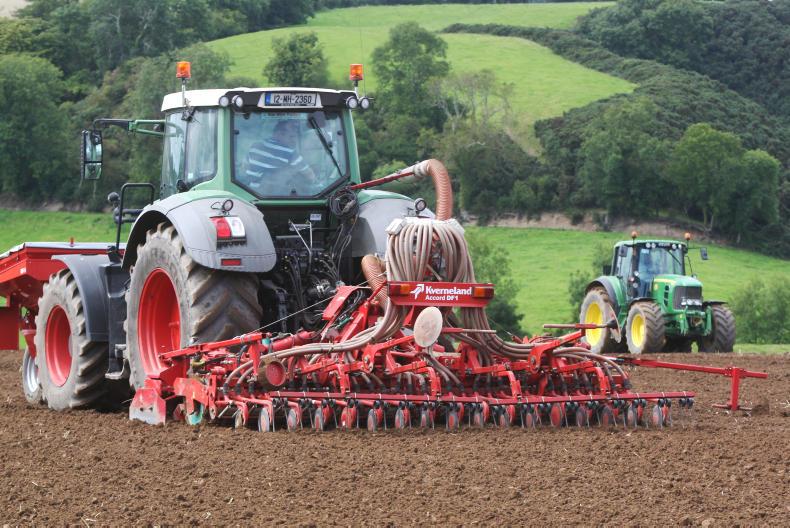
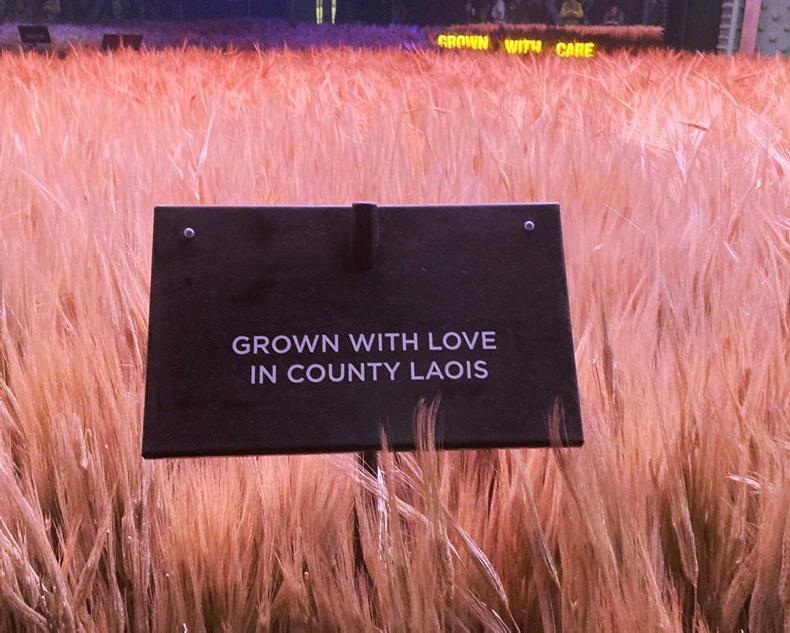
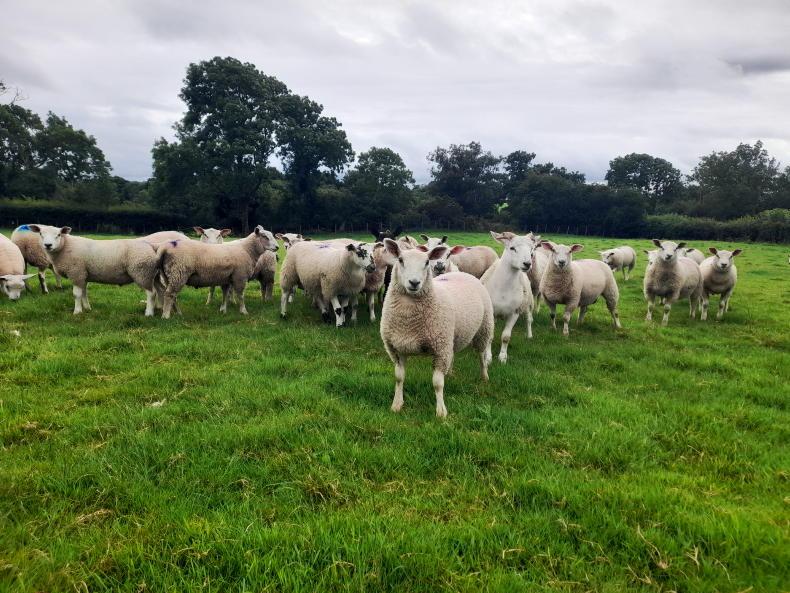
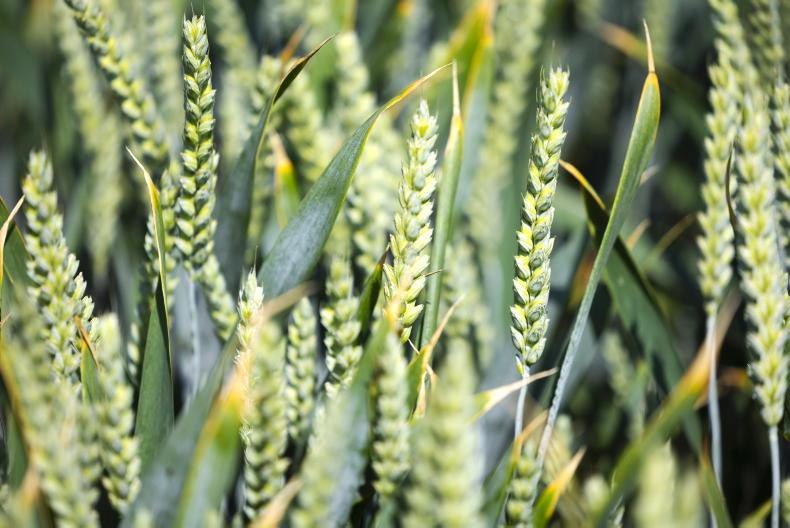

SHARING OPTIONS